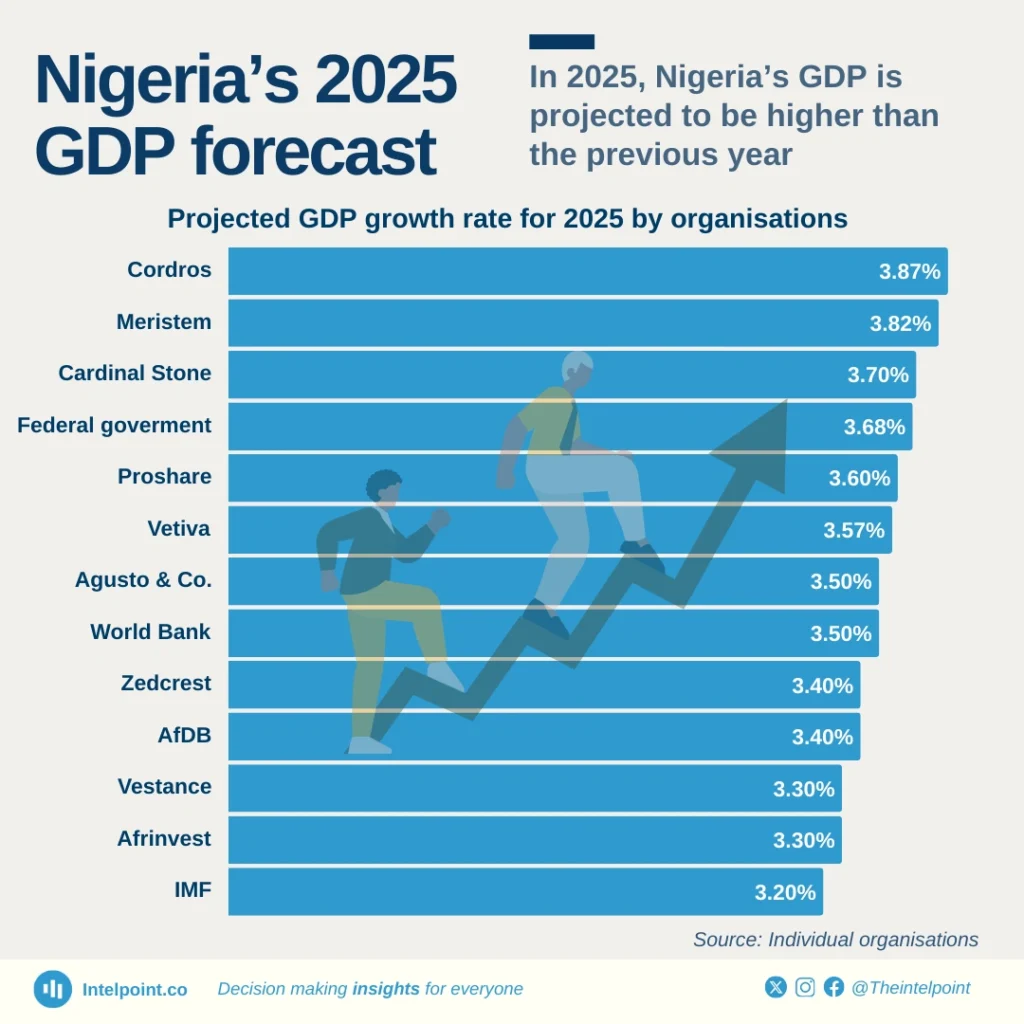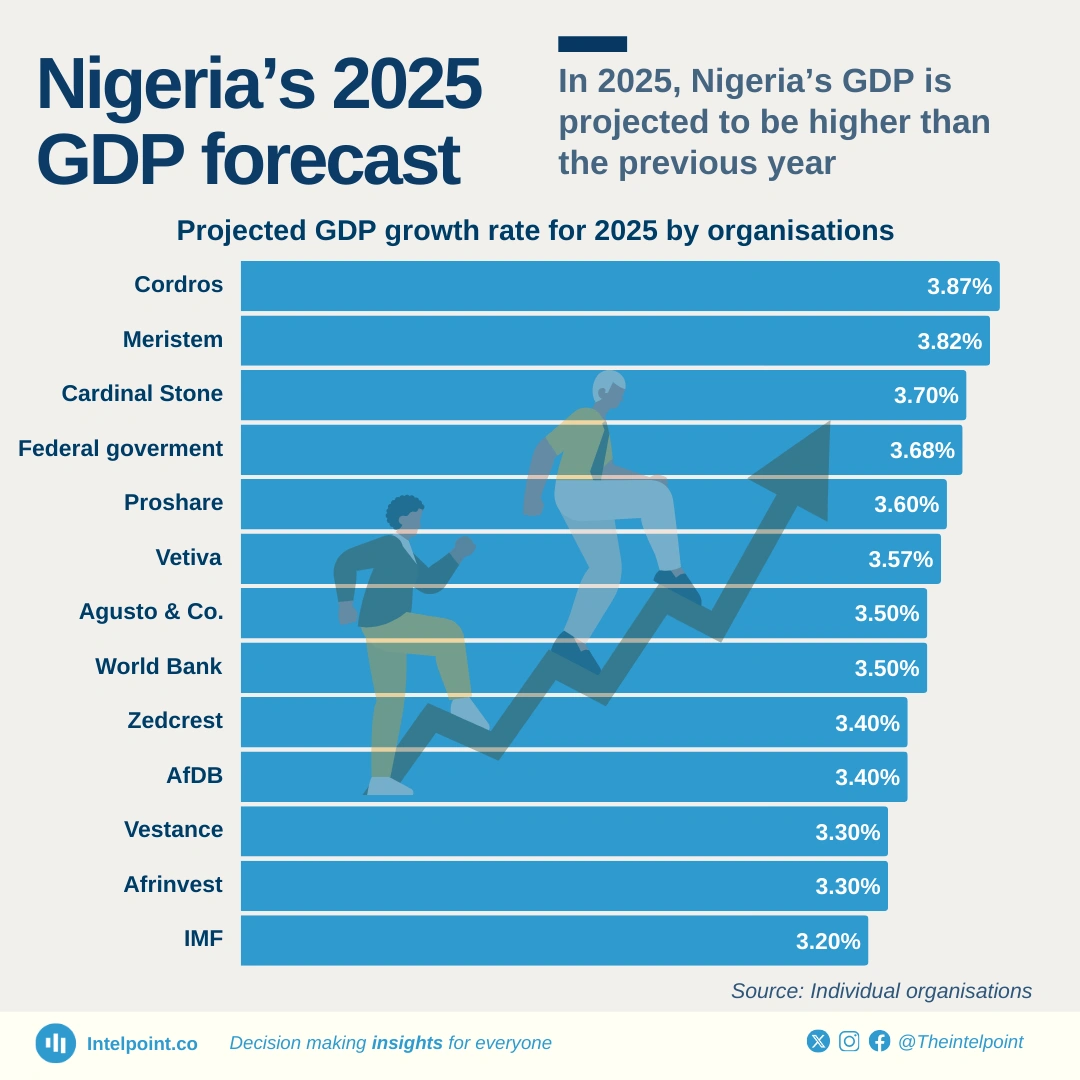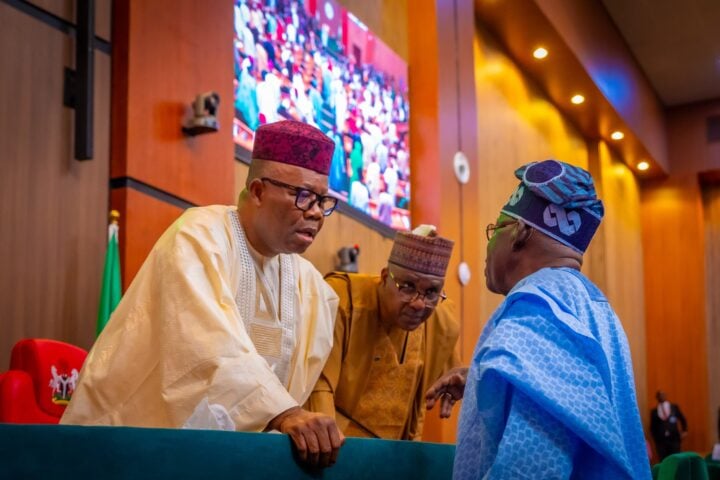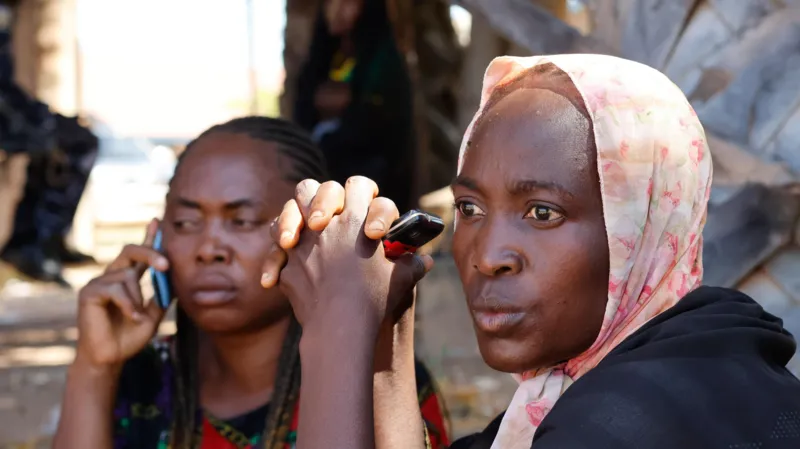Abuja, Nigeria – August 4, 2025
The Centre for the Promotion of Private Enterprise (CPPE) has projected that Nigeria’s Gross Domestic Product (GDP) could hit approximately $450 billion by December 31, 2025, assuming no major economic disruptions. This projection was issued by CPPE CEO, Dr. Muda Yusuf, based on the newly rebased GDP figures released by the National Bureau of Statistics (NBS).

Current Economic Snapshot
Nigeria’s nominal GDP stood at ₦372.82 trillion in 2024, following the NBS’s rebasing exercise anchored to 2019 as the new base year. This reflects a 41% upward revision compared to the previous base year.
In the first quarter of 2025, Nigeria recorded ₦94 trillion in output, equivalent to around $300 billion cumulatively, representing a 3.13% growth year-over-year.
Drivers Behind the Projection
Dr. Yusuf attributed the strong forecast to Nigeria’s economic recovery trajectory post-rebasing. The rebased data better captures recent shifts in economic activity, particularly in emerging and previously underrepresented sectors such as ICT, financial services, oil refining, and transportation.
However, growth in non-oil sectors remains uneven. Agriculture grew by only 0.7%, while manufacturing recorded a modest 1.7% growth in Q1 2025.
To bridge this gap, CPPE recommends targeted support and structural reforms for lagging real sectors, notably agriculture and manufacturing, along with improvements in access to finance, innovation incentives, and security enhancements.
Policy Imperatives Ahead
CPPE emphasized the necessity of more frequent re-basing exercises to keep national economic statistics relevant and credible for planning and investment decisions. Additionally, the Centre calls for:
- Broader tax reforms and revenue mobilization within the non-oil economy
- Strengthened fiscal strategies to ensure inclusive growth and macroeconomic stability
What This Means
Should the forecast hold, Nigeria would be on a path toward a significant expansion of its economy from early 2025 levels—a sign of recovery and structural shift post-rebasing. Achieving the $450 billion milestone would position Nigeria closer to its 2030 vision of a $1 trillion economy.
Caveats and Risks
The projection is contingent upon stability in key areas:
- Global commodity prices (especially oil)
- External shocks (e.g. conflict, inflation spikes)
- Domestic policy continuity and effective implementation
Any disruption could significantly alter the growth trajectory.


















